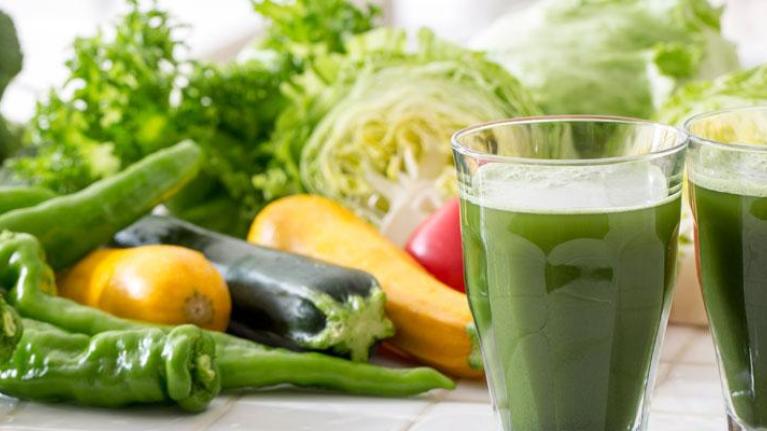
Keep Your Menu Current: Include Plant-Based Beverages
Plant-based beverages like juices and milk alternatives have soared in popularity. Learn how to satisfy the demand for these premium beverages that support premium pricing.
Juices, smoothies, and milk have always been menu mainstays, but the plant-based menu trend represents an important new way to promote these popular, better-for-you beverages.
According to Datassential, plant-based had posted phenomenal growth of 2,462.4% on U.S. menus over the past four years, and 327.6% during the past 12 months alone. The category includes not only the obvious fruit and vegetable juices and smoothies, but also plant-based milks like almond and coconut, as well as two of the oldest beverages made from plants in existence: tea and coffee. Adding these options to plant-based menus and calling them out for their natural properties is a sure way to boost sales.
Juices
In addition to evergreen varieties like orange, apple, cranberry, and grapefruit, there’s fresh news in less-familiar juices such as beet and peach juice, as well as exciting blends of fruits, vegetables, and other plants, like ginger and fresh basil.
Such offerings spark interest, provide variety and trend appeal, and can be positioned as premium beverage options.
According to Datassential, functional juices—those that contain beneficial and better-for-you ingredients, such as berries, kale, and turmeric—represent a sizable and growing portion of juices on menus. In fact, they are predicted to grow 13% over the next four years, at a median price of $3.65, versus 2% at $2.99 for traditional juices.
Smoothies
The smoothie category has become truly creative in recent years, in line with growing consumer demand for exciting plant-based menu options. From health-oriented options (green shakes and inclusions such as spirulina and chia seeds) to indulgent combinations of top-shelf ingredients (chocolate, nuts, dates, and passion fruit), smoothies are craveable players. They are also versatile multitaskers, working not only as a beverage, but also a meal replacement (especially breakfast), snack, and dessert.
Here are some combinations from recent menus:
- Almond milk, soy milk, pistachios, soy protein, kale, mangos
- Roasted banana, dates, almonds, cinnamon, oats, chia seeds, coconut, peanut butter, cacao nibs
- Kale, chard, coconut yogurt, almond milk, banana, vegan protein
- Coconut milk, white chocolate mocha, and espresso roast with caramel drizzle and mocha
- Banana, dates, pink salt, apple, kale, parsley, sunflower seeds, cucumber, lemon
Milk Alternatives
Plant-based milks are most commonly associated with lighteners for coffee and tea, but products like coconut milk, almond milk, soy milk, cashew milk, and other nut- and grain-based milks also have a place in milkshakes, frappes, horchata, and other indulgent beverages that would normally be off limits to vegans and those with dairy allergies and aversions.
Datassential has tracked significant growth in:
- Oat Milk (+ 1,697.8% since 2016)
- Almond Milk (+ 168.8%)
- Cashew Milk (+ 99.7%)
- Coconut Milk (+ 21.3%)
- Soy Milk (+ 19.3%)
Sources: Datassential SNAP! Plant-Based (2020); Datassential for Nestlé Professional, Functional Juices (2019); Datassential SNAP! Plant-Based Milks (2020)
The information provided is based on a general industry overview, and is not specific to your business operation. Each business is unique and decisions related to your business should be made after consultation with appropriate experts.
GET STARTED
The plant-based beverage trend has also made inroads into the mocktail/nonalcoholic beverage category; find out more here with this special download.


